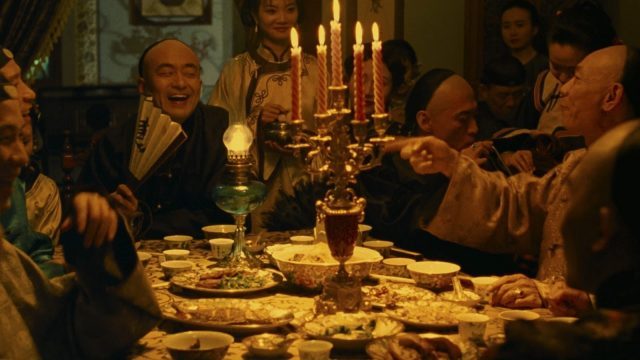
Hou Hsiao-hsien gem Flowers of Shanghai explores complex relationships between wealthy patrons and courtesans
FLOWERS OF SHANGHAI (HAI SHANG HUA) (Hou Hsiao-hsien, 1998)
Walter Reade Theater
165 West 65th St. between Broadway & Amsterdam Aves.
July 2-20, $15
www.filmlinc.org
Taiwanese New Wave master Hou Hsiao-hsien might be the best filmmaker whose work you’ve never seen. For more than thirty-five years, he has been telling intimate, meditative stories about life, family, and relationships with a gentle, deeply intuitive style, infused with gorgeous visuals and subtly beautiful soundtracks. Film at Lincoln Center’s wide-ranging “Big Screen Summer: NYFF58 Redux” continues with one of the New York Film Festival staple’s most elegant tales, Flowers of Shanghai. The 1998 film, being shown in a dramatic 4K restoration, is set in brothels, known as flower houses, in 1884 in the British Concession, where men and women congregate for social interaction and develop long-term bonds and responsibilities to one another based on much more than just sex. The men play drinking games, smoke opium, and buy the women gifts. The story, told in a series of vignettes as Mark Lee Ping Bin’s camera slowly moves through dark, lush, reddish gas-lit interiors, focuses on Master Wang (Tony Leung Chiu-wai), who has promised to be the sole patron of Crimson (Michiko Hada) but who has also been secretly seeing the younger Jasmin (Vicky Wei) and lavishing her with presents. The elder Master Hong (Luo Tsai-erh) and Auntie Huang (Rebecca Pan), the madam, discuss the situation, bringing up issues of responsibility and honesty, attempting to come to some kind of understanding in an exchange that shows respect for both the men and women who are a far cry from the Western conception of johns and prostitutes.
Most scenes end by fading quietly to black, then introducing the woman protagonist of the next section — Crimson, Jasmin, Pearl (Carina Lau), Jade (Shuan Fang), and Emerald (Michelle Reis) — as the women gossip and Crimson and Hong, and other pairs, try to figure out what they want out of life and from one another. In Flowers of Shanghai, Hou explores class differences, gender roles, the Asian notion of saving face, and intimacy with grace and sophistication. When the film fades out for the final time, viewers are left knowing they’ve just experienced something special, a stunning work that uses the technologies of cinema to delve into the very nature of humanity.
“Big Screen Summer: NYFF58 Redux” runs through August 26 with such other 2020 film festival favorites as Joyce Chopra’s Smooth Talk, Eugène Green’s Atarrabi and Mikelats, John Gianvito’s Her Socialist Smile, William Klein’s Muhammad Ali, the Greatest, Nuria Giménez’s My Mexican Bretzel, Philippe Lacôte’s Night of the Kings, and Orson Welles’s Hopper/Welles, an epic conversation between Welles and Dennis Hopper.